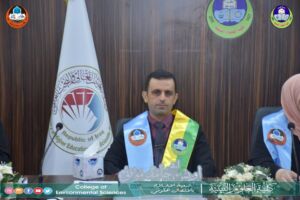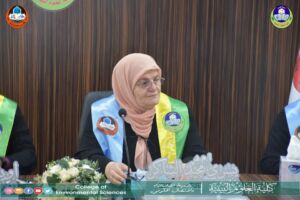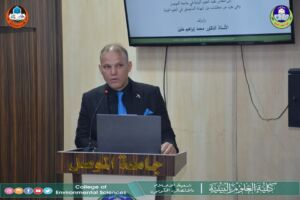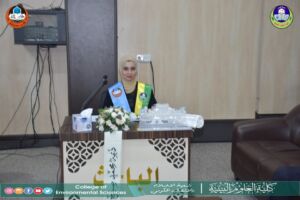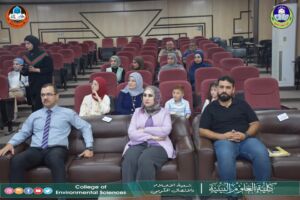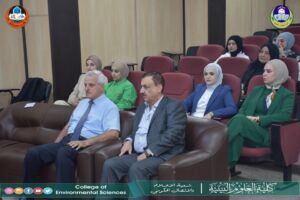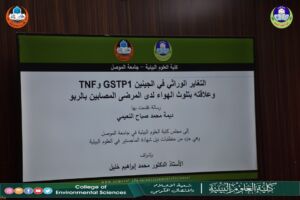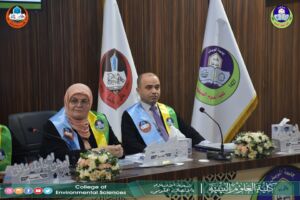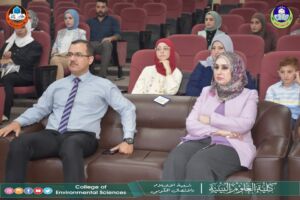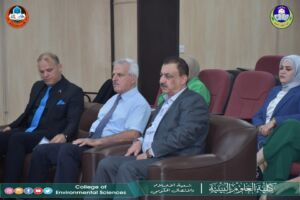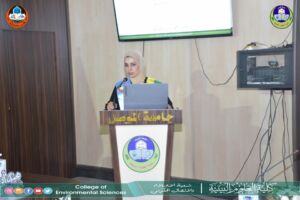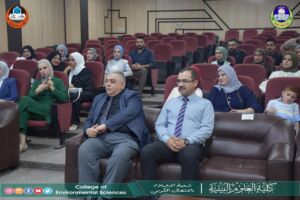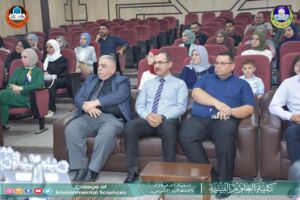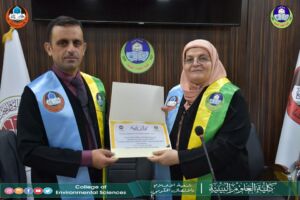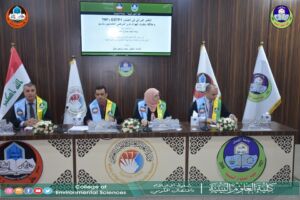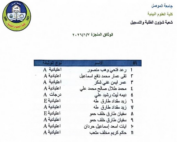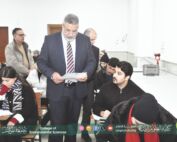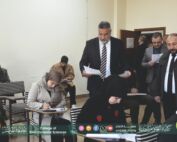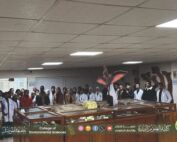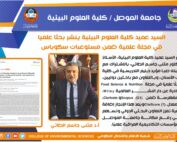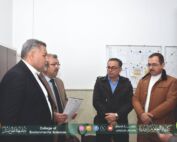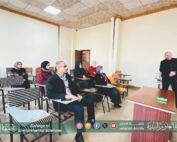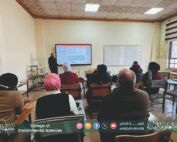29 August، 2024
Discussion of a master’s thesis in the College of Environmental Sciences on genetic variation in the genes GSTP1 and TNF in patients with asthma..
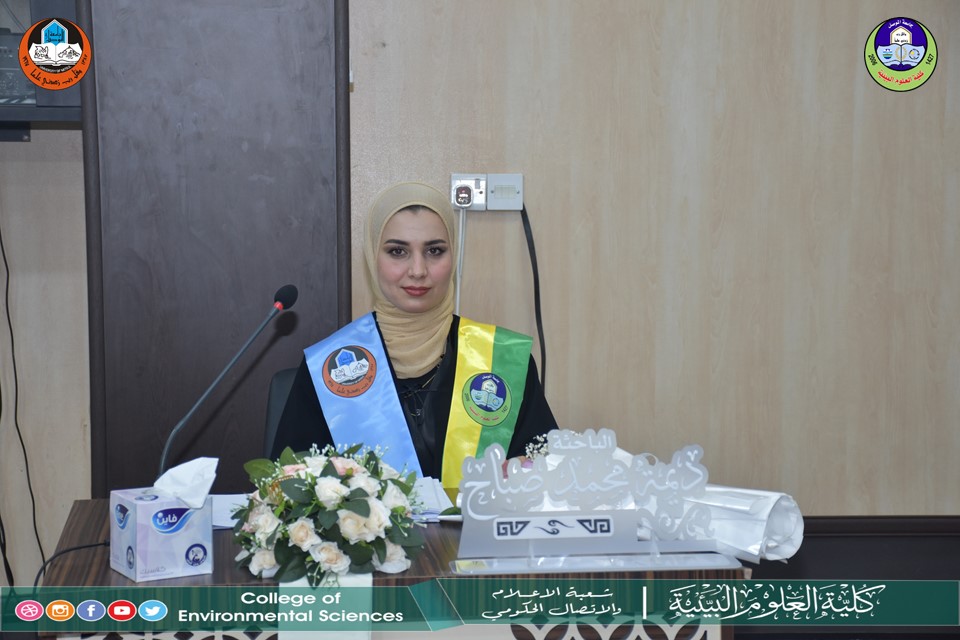
This morning, Thursday, August 29, 2024, the discussion of the master’s thesis of the student Dima Muhammad Sabah Aziz took place on her thesis entitled “Genetic variation in the genes GSTP1 and TNF and its relationship to air pollution in patients with asthma”, attended by the Assistant President of the University for Scientific Affairs, Professor Dr. Munir Salem Al-Badrani, and the Director of the Department of Postgraduate Studies at the University of Mosul, Dr. Omar Muzaffar.
The discussion committee was headed by Professor Dr. Owais Muwaffaq Hamid and the membership of Assistant Professor Dr. Yusra Majeed Shihab Al-Shaker and Assistant Professor Dr. Ghazwane Qasim Hassan and the membership and supervision of Professor Dr. Muhammad Ibrahim Khalil.
The study included evaluating the potential relationship between exposure to pollutants and the induction of both the rs1138272 mutation in the GSTP1 gene and the rs1131882 mutation in the TBXA2R gene, which are related to an increased risk of asthma among workers in the Badoush Cement Expansion Plant. The study aimed to study the possibility of a relationship between air pollution occurring within the laboratory environment and its relationship with genetic variation of both genes GSTP1 and TBXA2R and to investigate the presence of mutations for both the (GSTP1) gene specifically rs1138272 and the TBXA2R gene specifically rs1131882 among workers in the administrative units, mills, ovens, quarries, medicine and quality control and to compare the results with the control group, in addition to studying the impact of emissions on the health of workers and measuring the levels of the liver enzyme (Alanine Aminotransferase ALT) and Creatinine levels to evaluate liver and kidney functions and finally to know the impact of emitted pollutants on some blood components such as white blood cells (WBCs) and measuring the amount of antibodies Immunoglobulin E. The study recommended expanding the scope of the current study for both (TBXA2R) and (GSTP1) taking into account increasing the number of study samples in order to reduce the margin of statistical error and enhance the strength of statistical significance For the results, and analysis of the role of the genetic mutation (rs1695) in the gene (GSTP1) as a cause of asthma and determining the extent of its contribution to increasing the risk of infection, and obligating workers affiliated with the laboratory to wear protective equipment such as masks and glasses during work to reduce their exposure to emitted pollutants, and recommended increasing the plant biomass around the industrial facility through afforestation to contribute to the absorption of polluted gases emitted from the laboratory, and implementing a comprehensive medical examination program for workers with the aim of early detection of any functional disorders, in addition to conducting extensive studies on genetic disorders to investigate the causes of various diseases when continuously exposed to emitted pollutants and urging workers, especially the elderly with blood pressure and diabetes, to monitor their health condition periodically.
The Dean of the College, Dr. Yusra Majeed Al-Shaker, also presented certificates of appreciation to both Professor Dr. Owais Muwaffaq Hamid and Assistant Professor Dr. Ghazwane Qasim Hassan for their attendance and active participation in the discussion.
Department of Media and Government Communication
College of Environmental Sciences
Thursday 29 August 2024

